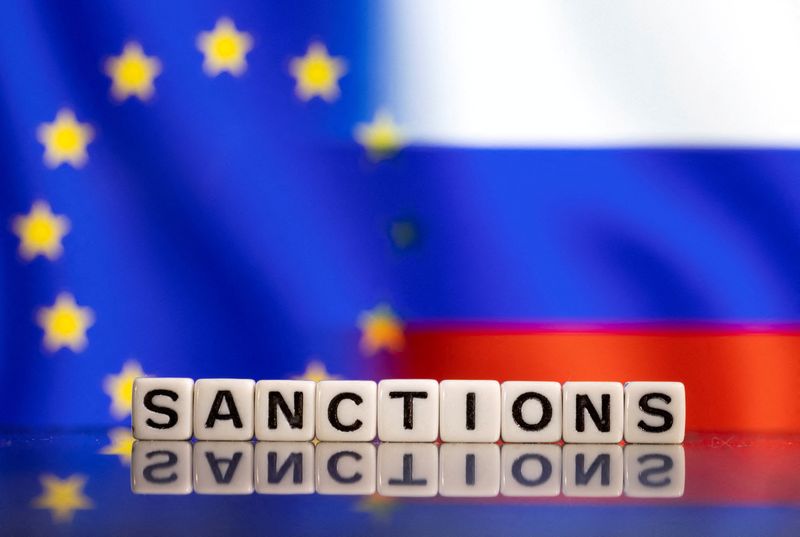EU countries look to extend freeze on Russian assets to secure G7 loan to Ukraine
2024.07.24 12:38
By Jan Strupczewski and Julia Payne
BRUSSELS (Reuters) -European Union member states discussed options for extending the renewal period of sanctions on Russian central bank assets to secure a major Group of Seven loan to Ukraine, an EU draft document showed and diplomats said on Wednesday.
Leaders of the Group of Seven major democracies and the EU agreed in June to use the interest on frozen Russian assets to underpin a $50 billion loan for Ukraine to help it defend itself against Moscow’s invasion.
The bulk of the some $300 billion in assets is held in EU financial institutions, mostly in Belgium. According to EU regulations, the sanctions regime on Russia needs the unanimous approval of EU states to be renewed every six months.
Some of the G7 members including the United States worry that there may come a time when unanimity in the 27-nation EU is not reached, jeopardising the entire loan, EU diplomats said.
Hungarian Prime Minister Viktor Orban has closer ties to Russia than other national leaders in the EU, and has repeatedly held up moves to impose new restrictions and financial support to Ukraine.
The European Commission, the EU’s executive, and its foreign service arm sent a “non-paper” – a document type used in EU circles to float ideas – for the countries to discuss.
“The options are limited to the immobilisation of CBR (Central Bank of Russia) assets, would require unanimity by the Council and comply with the temporary and reversible nature of sanctions,” a spokesperson for the Commission said.
“It is now for member states to discuss these options. Subject to the outcome of the discussion, the HR (chief diplomat) and Commission stand ready to table proposals.”
EU ambassadors discussed two options on Wednesday aimed at alleviating the concerns of G7 members. One would be an “open-ended” extension of the sanctions regime that immobilised Russia’s central bank assets.
“This shall be reviewed by the Council at regular intervals (e.g. 12 months) on the basis of clear predefined criteria (i.e. the end of the war of aggression and assurances of non-repetition, the payment of compensation by Russia, etc.),” the document said.
The other option would be to extend the renewal period to up to three years. Unanimity among EU member states would still be required in either case and these extensions would apply only to Russian central bank assets.
The document said the two options aim to “enhance legal certainty and predictability for G7 partners for the extraordinary revenue streams, which shall be made available to Ukraine to service and repay additional bilateral loans by the EU and G7 partners”.
EU diplomats said the discussions were at an early stage but countries hinted at their initial preferences.

Baltic and eastern European states were among those that favoured the open-ended version while France and Germany were looking more favourably upon a longer but still limited renewal period. The European Commission will present a formal proposal towards the end of August or early September, diplomats said.
Belgium had cautioned that the Commission should bear in mind litigation risks and financial market stability.








